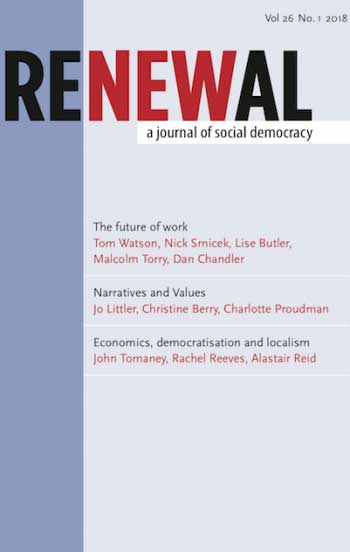
Speenhamland, automation, and Basic Income: A response
Renewal - Print ISSN 0968-5211 - Online ISSN
Volume 26 Number 1 (2018)
Speenhamland, automation, and Basic Income: A response
Malcolm Torry
Abstract
In the final edition of Renewal for 2017 (issue 25.3-4), Frederick Pitts, Lorena Lombardozzi and Neil Warner suggest that the experience of the Speenhamland reforms of 1795 were ‘an experiment in a kind of basic income’.
It was not. It was an extension of poor relief to the working poor. The supplements paid out of the rates guaranteed a net income. They were definitely not a ‘Basic Income’. The difference is crucial. A guaranteed minimum income is a minimum income level below which a household’s income is not allowed to fall, and the payment made is designed to bring a household’s net income up to the specified level. The modern equivalents are Working Tax Credits and so-called Universal Credit. In Speenhamland the supplement paid out was designed to fill the gap between the worker’s earnings and a specified minimum income that was related to the size of the family and to the price of bread. The supplement was a means-tested benefit.
SORRY - you are not registered as being permitted online access to the full text of this article
You have the following options:
- If you are viewing this via an institution or academic library you can ask that your institution takes out a Subscription to this journal.
- If you already have a Personal Subscription please login below
Forgotten your username / password? Click here to locate
- Please note: The Renewal journal will shortly be taken over by Compass, the campaign group for a Good Society. They will be in touch soon with how to subscribe or renew your subscription in time for the Spring issue but for now, if you have any questions you can email info@compassonline.org.uk
To cite this article
Malcolm Torry (2018) Speenhamland, automation, and Basic Income: A response, Renewal, 26(1)
